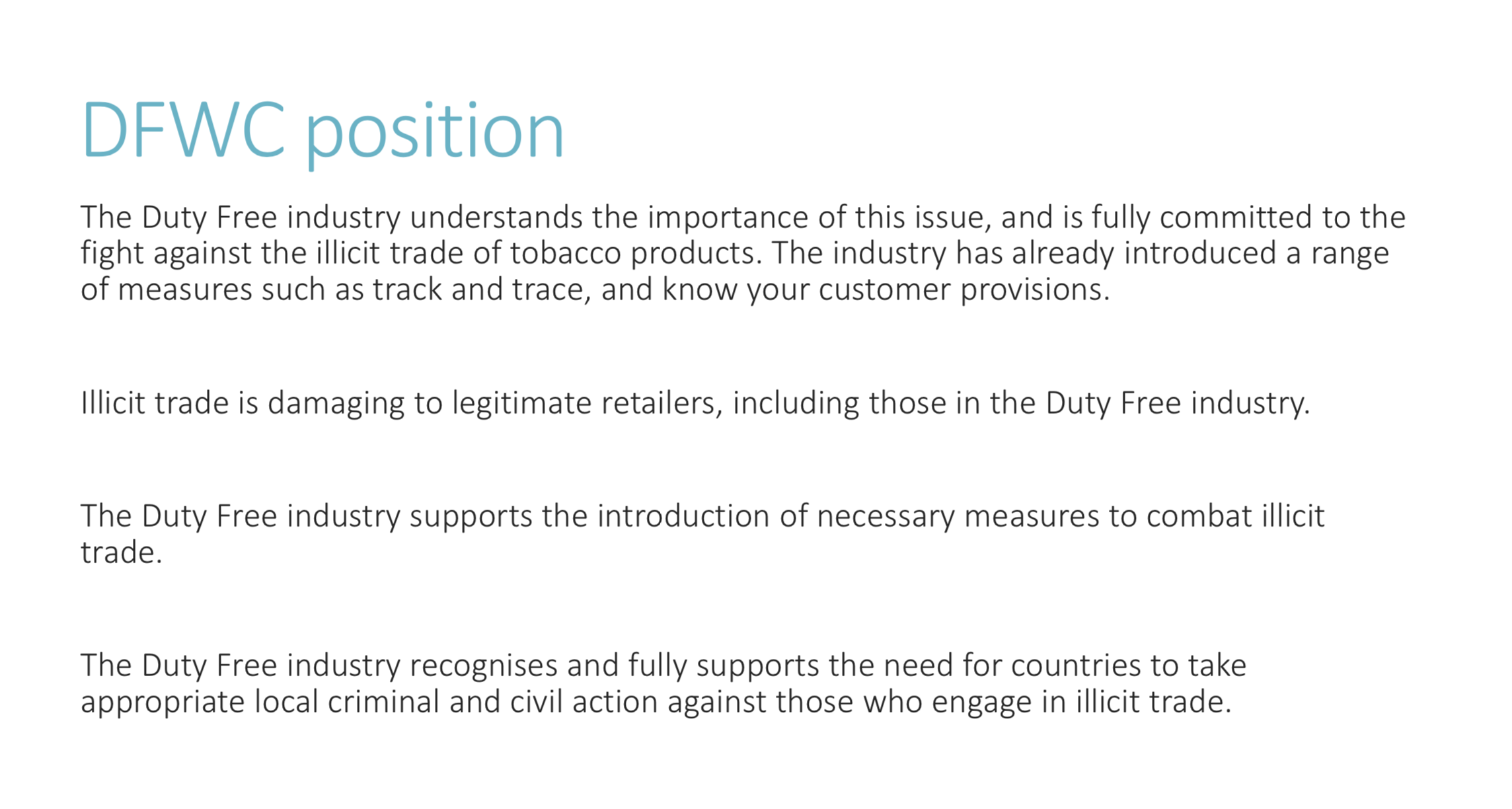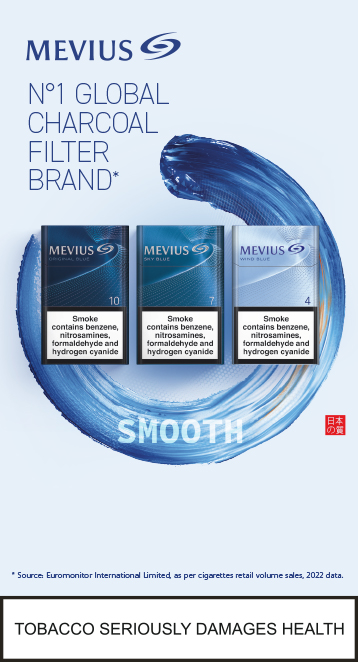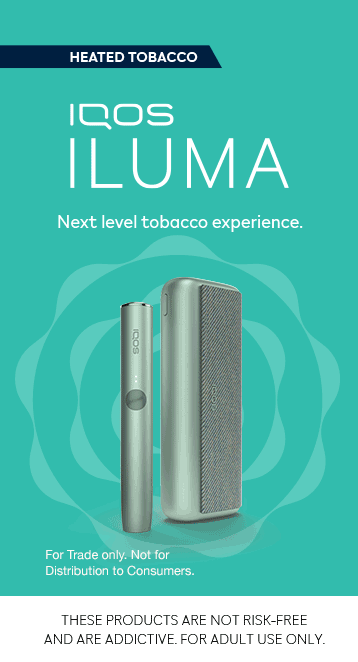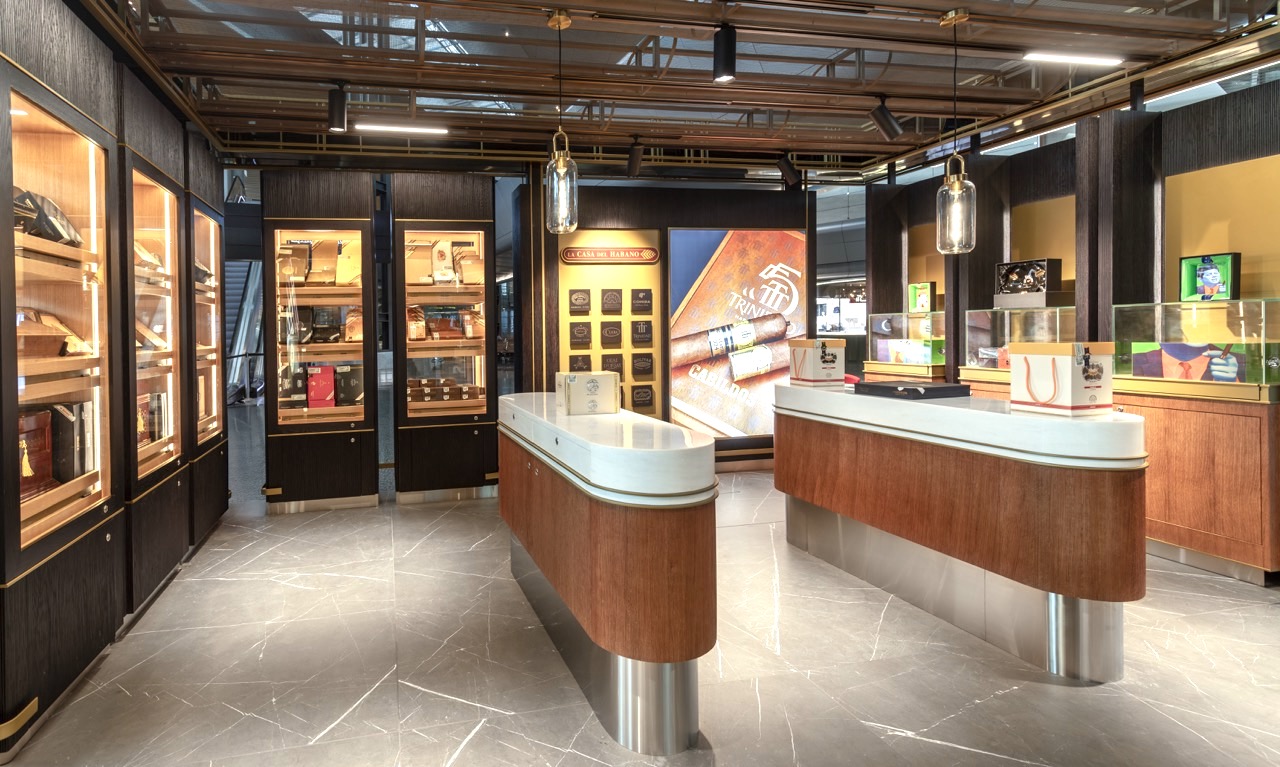INTERNATIONAL. Duty Free World Council (DFWC) President Sarah Branquinho has underlined the organisation’s commitment to fighting suggestions that the duty free industry is involved in the illicit trade of tobacco. The implication could lead to a ban on the sale of tobacco in travel retail, and the loss of a key duty free category that was worth more than US$7.4 billion in 2019.
The DFWC has set out a strong position on the issue ahead of MOP2 (Meeting of Parties), which is due to discuss the World Health Organization’s (WHO) Illicit Trade Protocol (ITP) on 21 November.
“There can be no justification for penalising legitimate, law-abiding businesses under a pretext of controlling illicit trade” – Duty Free World Council (DFWC) President Sarah Branquinho

Under article 13.2 of the ITP, which focuses on tobacco, there is a call for an evidence-based study “to assess the extent to which duty free contributes to the illicit trade”. Delivering a briefing to travel retail trade media last week, Branquinho said the DFWC, and many stakeholders in the wider industry, “fundamentally reject the implication of this wording”.
Branqhuino – who, as reported, also recently spoke on the subject during a recent MEADFA webinar – said that the duty free industry has a long history of working closely with customs and enforcement bodies to eradicate problems such as illicit trade, smuggling and counterfeiting, and must be given the opportunity to cooperate and contribute further.
“There can be no justification for penalising legitimate, law-abiding businesses under a pretext of controlling illicit trade,” she said. “We are one of the most regulated sectors in the world.”
Branquinho noted that duty free retailers face substantial penalties from customs authorities “even if there’s the slightest discrepancy in stock reconciliation procedures… we have every incentive ourselves as retailers to ensure that there are no discrepancies”.
The DFWC has issued a position statement which notes that duty free retail revenue is the cornerstone of growth for airports, ports, and the global aviation and maritime industry and that its importance to global travel recovery following COVID-19 “cannot be overstated”.
Further, the DFWC argues that all requirements and planned change control measures set out in the Illicit Trade Protocol should be fully implemented before the evidence-based study is conducted.

Branquinho said: “Until then it will be impossible to ascertain if any further policy actions are required, especially given the unprecedented disruption to the global travel sector as a result of COVID-19.
“This study must be carried out in a fair and objective manner with full duty free industry participation, an adequate peer review process and the inclusion of experts familiar with all aspects of the duty free industry. It must objectively consider the current environment and include a thorough review of current settings.”

Branquinho emphasised that the duty free industry fully supports the implementation of the provisions of the WHO Protocol to eliminate the illicit trade in tobacco products. These include the establishment of licensing, due diligence, establishment of a tracking and tracing system, requirement of record keeping, and security and preventive measures.
Asked if the wider issues of the pandemic might dilute the resources duty free retailers could put into supporting the DFWC’s ITP lobbying effort, Branquinho replied: “Since we started ramping it up again, we’ve had very good engagement from retailers. It’s a matter now of getting round to them one by one.
“Obviously, within each retail company, we have extremely good links through the key people that sit on the various regional trade associations, and also directly with the largest retailers. But then it’s making sure that the message is cascaded within each of those retailers. They’ve been immensely supportive before, and I’m sure that it will happen again.
“People are so busy with other things that we need to make sure we get a share of their time. On the other hand, this is such an important matter for the industry, we’re confident that they are already working on it.”








